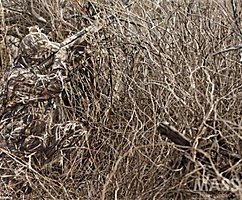Expand your vocabulary!
 Bashny.Net
Bashny.Net

One of these methods will gradually drive you crazy, other times will leave your companion at a loss, and if you use a third, none of public transport is not without oblique views for travel. On what stop?
Axioms
There are two kinds of vocabulary: active and passive. Active - these are the words that we use ourselves in speech and writing. Passive - words that we learn when reading and listening, but do not use themselves. Passive vocabulary typically several times more active. Learned words of a foreign language is to fall into the passive vocabulary, and they become active after you use them repeatedly in speech or writing.
How many words do you need to know?
Native speaker with a university education has a passive vocabulary in the 17-18 thousand words. To pass the FCE, you need to know about 5000 words. In everyday language typically used no more than 700 words. Which of these markers to target - you decide.
How many words can be learned in a day (week, month)?
A normal person would not normally get to learn qualitatively more than 15-20 words per day. The quality of supposed ability to remember the value of the new words in the text met him a month or two after learning. Optimally, learning new words 10-15 on weekdays and repeat them over the weekend.
Where to get new words?
· Do not take the new words from the list of the most frequently used words, the index of a dictionary or similar transfer them monotone words. Such words will fly in one ear, in another departure;
· Instead, look for new words when reading, watching movies or listening to audiobooks / radio. If any unfamiliar word is common, it's the need to put in place;
· Miss archaic and stilted language, which is rich in non-adapted English classics and column editors in newspapers such as The Guardian and The Times. Meeting with these words in real life is unlikely;
· Pay attention to phrases with words that you already know. English language is rich with phrases such seemingly innocent and verbs learned long ago how to turn, be and go.
Ways to learn new words
All of the following methods have repeatedly been tried specialists. They are listed in chronological order rather than in order of increasing efficiency.
1. Flash cards (cards)
This is one of the most popular ways to learn new words. Buy a unit leaves for records on one side write the word on the other - translation and an example illustrating the use of the word. Color block better than usual: you can record different parts of speech in the cards of different colors. Cards add up the pile, take with you in public transport / lectures / anywhere and iterate with the word side up, trying to remember what each one means. Can not remember - Turn the cards over and re-translation and an example again.
The method is good that the card can be added in any order: this is not a list of words, which will be remembered for a sequence of words rather than their meaning; you can always take a stack in the last week / month / year and repeat the old new words. Cards with a particularly difficult-to-remember words can be put in a separate pile and sort out more often than usual. Some pointedly tearing cards after memorize the words.
2. Treasure hunt (work with dictionary)
Dictionaries, especially monolingual, more interesting than any detective. You can climb to the dictionary with the intent to see the value of a single word, and as a result of turning the pages an hour, getting to know new words. On page search word there is probably a word you've seen before, but too lazy for him to get a dictionary: it's time to finally find out what it means. In the example to meet each unfamiliar word - go for it. And so - until you get bored. An impressive percentage of new words can settle in the passive vocabulary after a simple jog dictionary.
3. Language Games.
Play with words, crossword puzzles, crossword puzzles, jigsaw puzzles, and even banal word search will help you enrich your vocabulary.
4. Promarkiruem all!
Once I discovered that I do not know the names of the easiest things at home from a drawer to the toilet seat. I had a few hours of free time, a pack of white paper, bright yellow sticker and a black marker. I set to work, to stick pieces of paper with English words on almost everything found in the apartment: avoid this fate only households, and even then only because it quickly ran. The next few days, my opinion has always captured a couple of dozen words and full-size illustrations of their values; a week marked the beginning of the situation to drive me crazy, and I took all the stickers, making sure that all the words I remember.
5. Stories.
Another well-known method of memorizing words. Take ten new words, write them on a piece of paper, and makes them coherent story in English. Helps not only to remember new words, but to throw out the old passive vocabulary - in active. The disadvantage of this method: the words are usually from so many different areas that link them in the same paragraph is not no way. Or just plain laziness.
6. Laziness - the engine of progress
And by the way about her. Laziness - a key element of the method of memorizing new words, which I use in recent years. The method is very simple: when I read something on the Internet and come across an unfamiliar word in a sentence, I copy the entire proposal to a text file. It looks like this:
The thing worth taping last night was the ineffable «Monkey.»
Since no-one '/ s seen a policeman there for a good fifteen years, he can probably do it with complete impunity as well.
Then, when such passages dialed 10-15 pieces, I look up words in the dictionary, writing them down in a notebook by one as soon as I usvoyu meaning of the word, write it in context and mentally pick up for him the Russian equivalent), use monolingual, that is. e., Dictionary of English). Translation of the word, I do not write, but fits any additional information: part of the word, prepositions, with which it is used, if it is a noun, the countable or not, etc. Then, in transport or in line at the supermarket, I sort out a notebook page, stopping at every word, remembering that every means and in what context I met him. If a word can not remember, I had to open the file again, get dictionary ... All this is extremely tedious, so 90-95% of the words I memorize the first time. Just because laziness once again to open the dictionary.
7. What do I see - what I sing.
This method of funding the active vocabulary, and is available only to those who are able to practice live. The scheme is simple: when your partner will use an unfamiliar word to you, and you either guess what it means, or ask again his try in the next few minutes use that word themselves. If the person talking is not a mask of horror, so word is used correctly. Continue in the same spirit before sunset.
Tips after
· Always teach the word with the surrounding words: if it is a verb or adjective, note the excuses with which it is used, if it is a noun - a countable or not, etc .;
· If a dictionary lists several meanings of new words, do not try to learn everything at once - it will only add to the confusion; Stay the sense in which you met that word;
· Before turning to the dictionary, try to guess what is an unfamiliar word. Correctly "recognize" the word will be remembered more likely;
· Do not disdain shemku plates and illustrations to the words; enter a new word to the old, a common theme; use pens of different colors - anything you want to remind you later about the meaning without resorting to direct translation;
· Learn the words that you are interested in, not the ones that you think are useful, but boring. If you need to learn a list of words boring - make an effort and mentally move them from the category of boring into the category of an incredibly entertaining;
· Try all ways to expand vocabulary (not all at once, of course); select 2-3, which you seemed particularly effective and combine them;
· Remember that it is better to learn every day for three words than once a week en masse to swallow twenty new words.
In this article, of course, does not cover all ways of expanding your vocabulary. But if you know a couple of interesting methods of studying words, share them on our forum, and we, in our queue, turn your experience into an article that will help others achieve what you have achieved.
Tags
See also
As a self-learning English
10 ways that Facebook and other social networks make you smarter
23 evidence that the books make us better
12 unusual ways to learn German
Good habits that will help you learn a foreign language.
Kids Games for the development of speech and vocabulary baby.
These 10 ways to help you improve your memory. Keep your mind sharp.
70 valuable resources for anyone who is learning English
Games for vocabulary development of the child

















